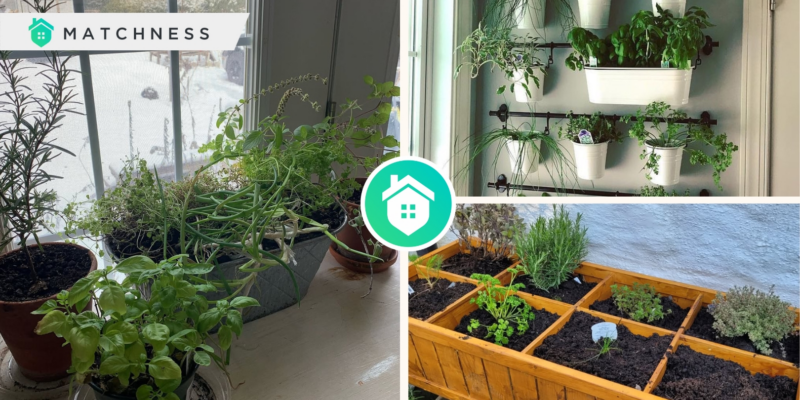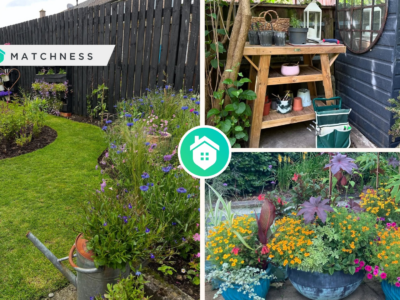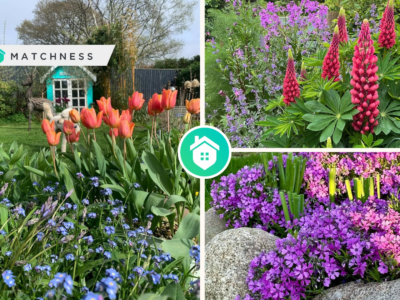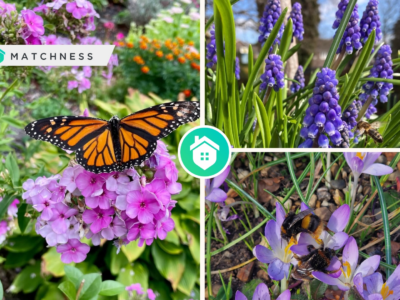Herb gardens are a source of beauty, flavor, and therapeutic value throughout the year. However, as the days shorten and the temperature drops, winter presents unique challenges for herb gardeners. Whether you’re a seasoned gardener or just starting, preparing your herb garden for winter is essential to ensure the plants survive and thrive when spring arrives. With proper care and a few adjustments, you can maintain a thriving herb garden even during the coldest months.
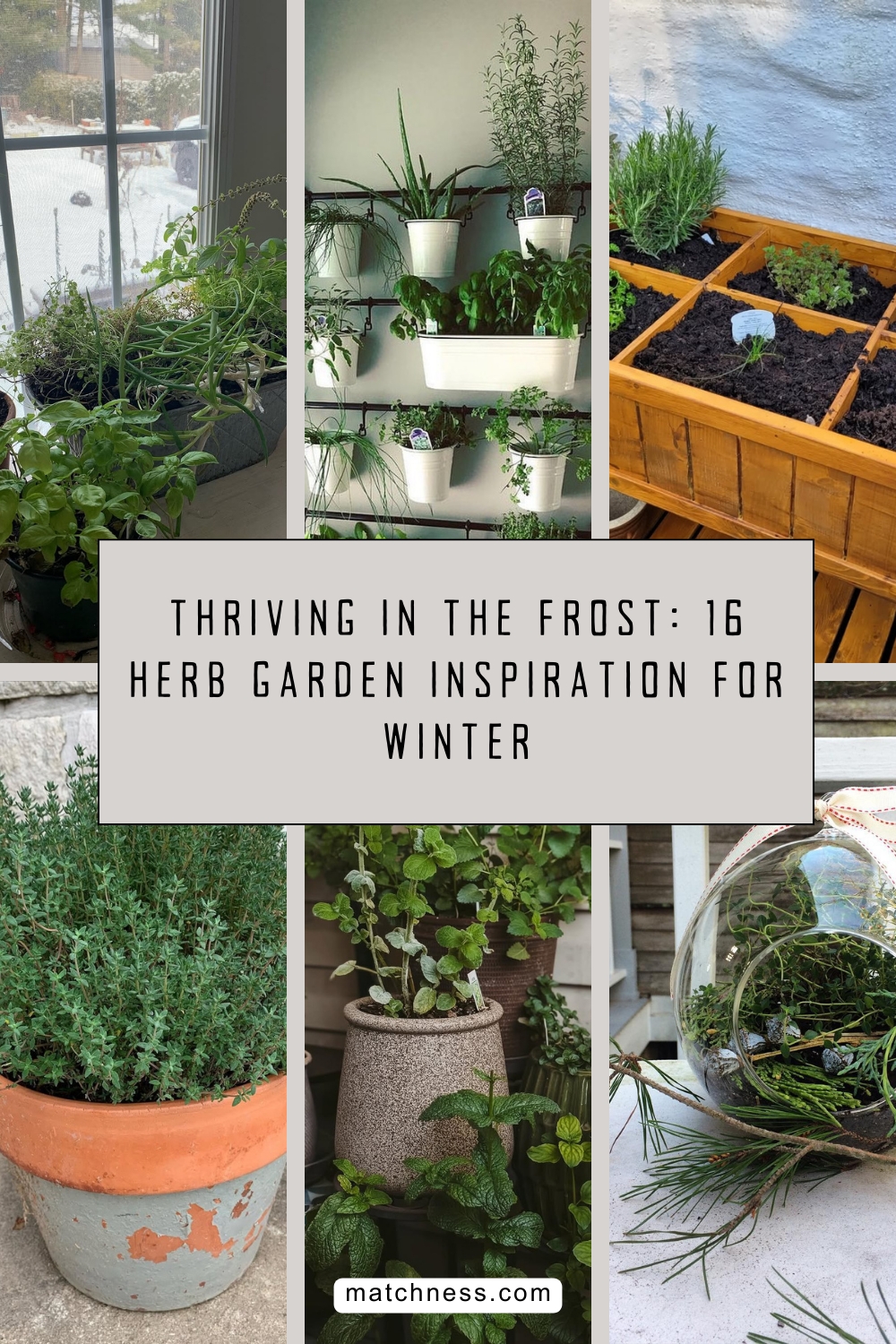
This guide will walk you through the steps to protect your herbs, optimize their growth conditions, and even continue enjoying fresh herbs indoors throughout the winter season.
Why Grow Herbs in Winter?
Winter herb gardening is not only a way to satisfy your green thumb during the off-season but also a means of enhancing your culinary and wellness routines. Fresh herbs can elevate the flavors of hearty winter stews, teas, and roasts while adding a touch of greenery to your home. Additionally, herbs like mint, thyme, and rosemary offer therapeutic benefits, such as relieving stress or boosting immunity during flu season. Growing herbs in winter also serves as a reminder of life’s resilience and beauty, even in the coldest months.
Choosing the Right Herbs for Winter Gardening
Not all herbs adapt well to indoor growing conditions, especially in winter. However, many hardy and low-maintenance varieties thrive in containers. Here are some of the best options:
- Parsley: A versatile herb that thrives in cooler conditions and adds a fresh touch to soups, salads, and sauces.

Winter gardening with parsley ensures a fresh supply of herbs due to its hardy nature, which can withstand frost. Parsley from @wellrootedht
- Thyme: Known for its resilience, thyme requires minimal care and is perfect for seasoning roasted dishes.

This potted thyme, a hardy herb that thrives in cooler temperatures, can enhance the vibrancy and fragrance of your winter herb garden. Thyme from @okra_in_my_garden
- Rosemary: This aromatic herb thrives in well-draining soil and provides a savory addition to meats and breads.

Rosemary, a hardy herb that thrives in cooler temperatures, can be planted in your winter herb garden to enhance your meals and add fragrance. Rosemary from @cotswold.potager
- Mint: With its rapid growth and refreshing flavor, mint is ideal for teas, desserts, and cocktails.
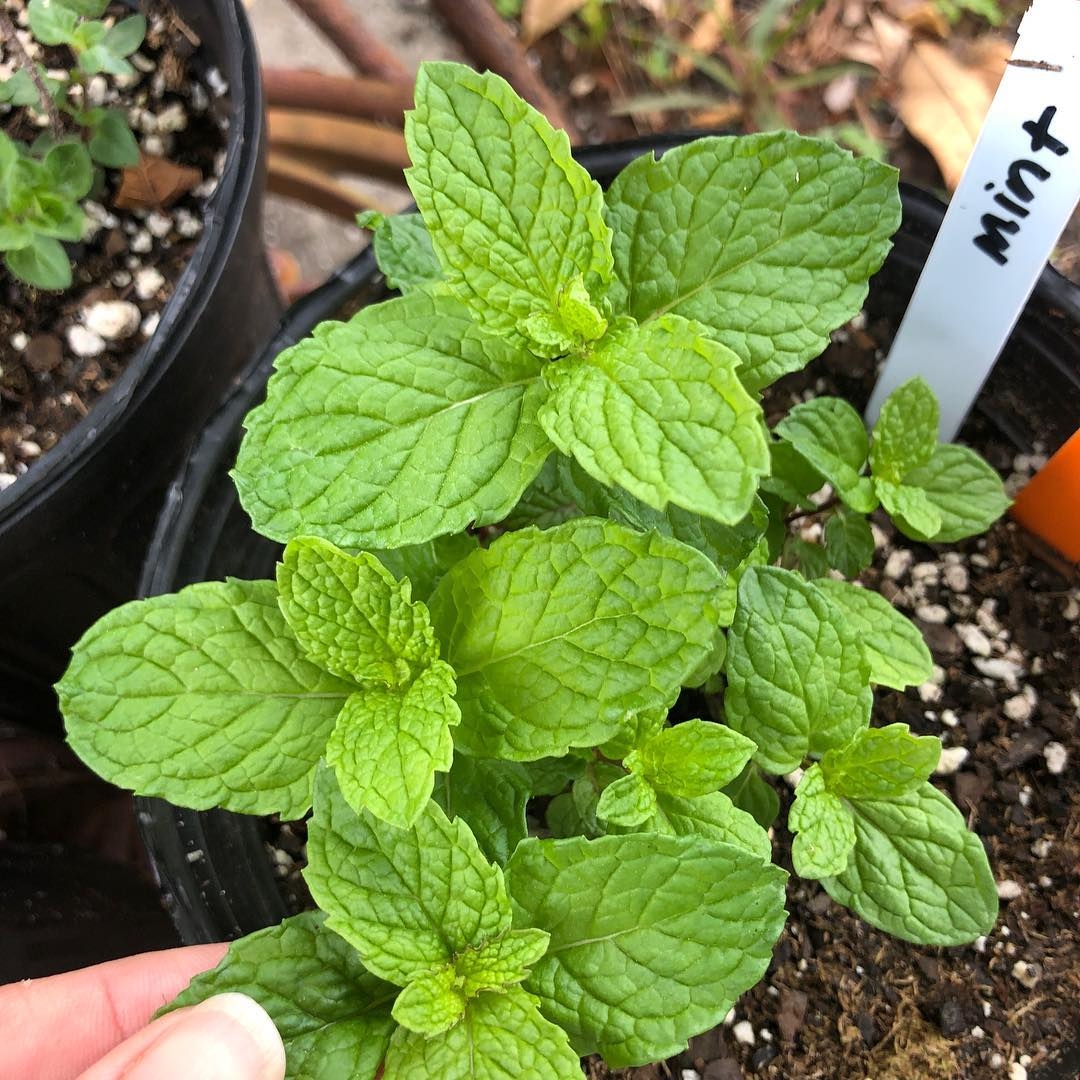
Mint is one herb that can thrive in winter due to its hardy nature and ability to withstand cold temperatures. Its refreshing flavor can add a burst of freshness to winter dishes and drinks. Mint from @wildrootlife
- Chives: A fast-growing herb that adds a mild onion-like flavor to various dishes.
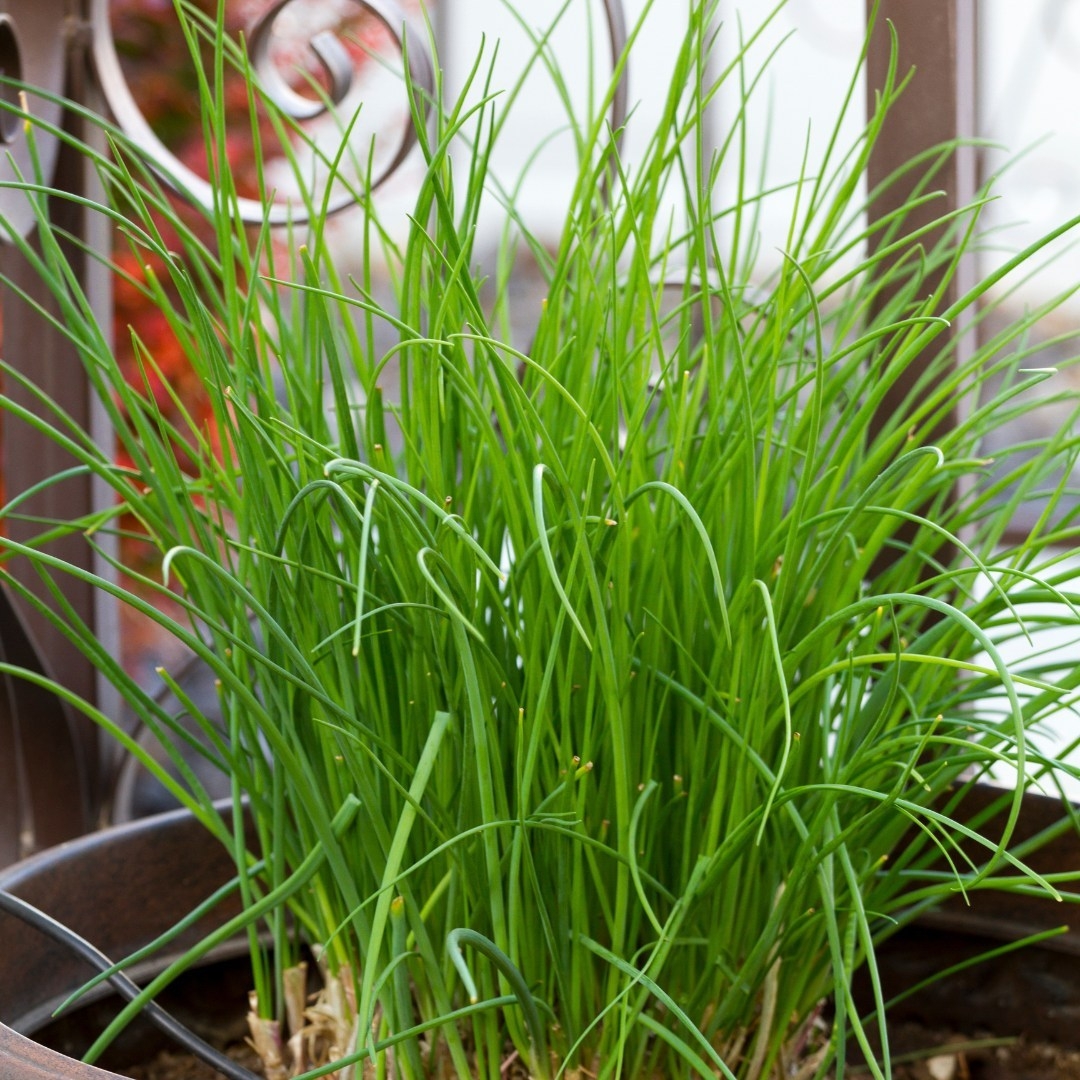
Chives, a resilient herb, can thrive in winter with proper care and protection, making them an excellent addition to any garden or kitchen herb collection. Chives from @hettys_herbs
- Basil: While more sensitive to cold, basil can thrive indoors with sufficient warmth and light.

You can plant basil for your winter herb garden ideas. Basil is a versatile herb that can thrive indoors during the colder months. It adds a fresh and aromatic touch to your winter dishes. Basil from @denise_naturopath
- Oregano: Oregano is another herb that can thrive well in winter. You can plant it in well-draining soil and place it in a sunny spot to ensure proper growth during the colder months. Oregano is a versatile herb that can be used in a variety of dishes, making it a great addition to any winter garden.

Oregano is a hardy herb that thrives in cooler temperatures. This is an excellent choice for adding flavor to your winter herb garden, making it a versatile addition. Oregano from @wildrootlife
- Lemon Balm: Furthermore, you can also plant lemon balm this winter. Lemon balm is a hardy herb that can withstand colder temperatures and is known for its calming properties. It can be grown in containers or directly in the ground, making it a convenient addition to your winter garden.
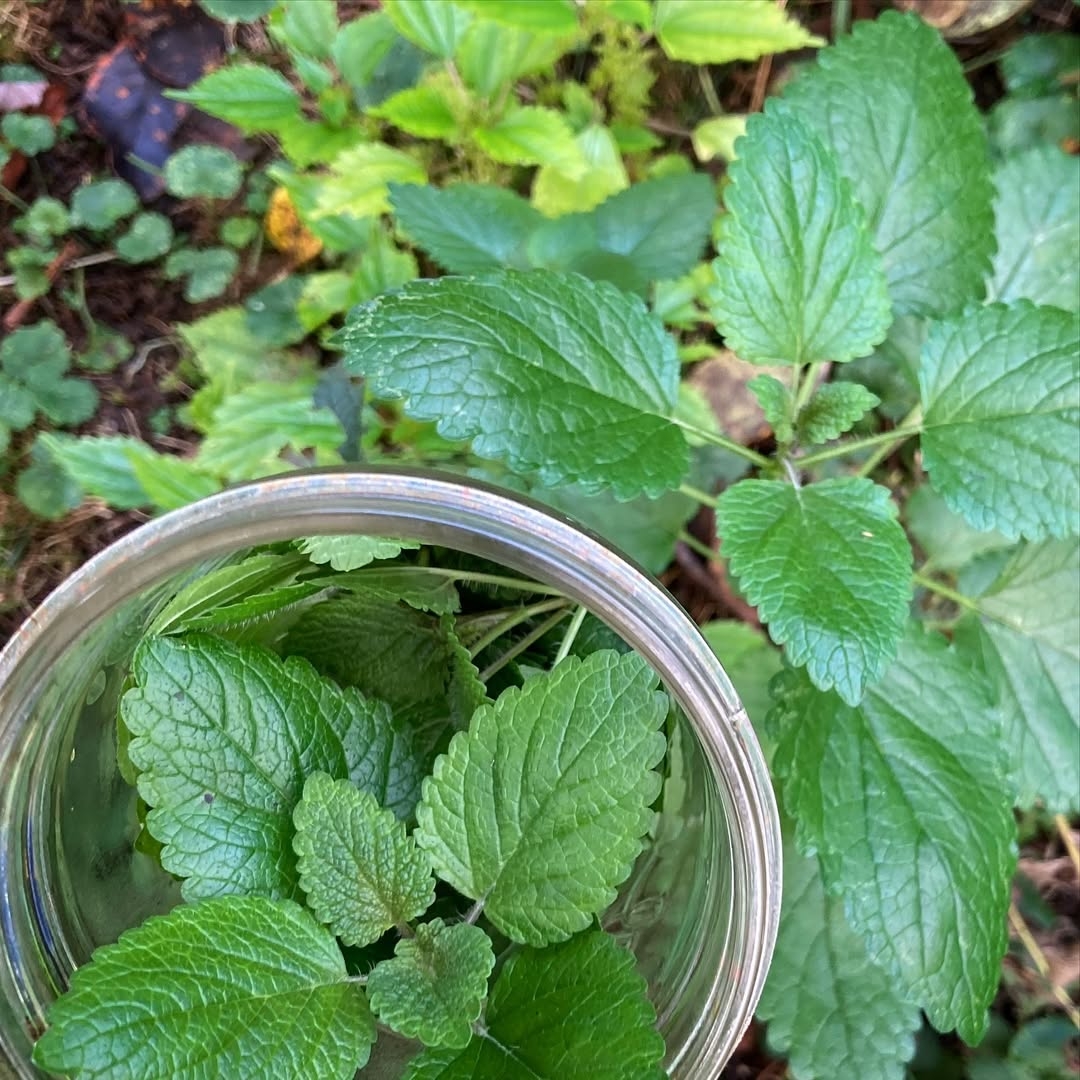
Like mint, lemon balm can also be a great addition to your winter herb garden for its refreshing scent and potential health benefits. These herbs are relatively easy to grow and can be used in a variety of culinary dishes or teas. Lemon balm from @tle446
Winter Herb Garden Ideas
There are two ways to have a herb garden in winter: indoor and outdoor herb gardens. Both options allow for fresh herbs to be easily accessible for cooking and enjoyment throughout the colder months. Here is some inspiration for you.
Indoor Herb Garden Ideas
Creating an indoor herb garden is one of the most effective ways to ensure a steady supply of fresh herbs during winter. Here are some inspiring approaches:
- Windowsill Gardens: A sunny windowsill can serve as the perfect spot for an herb garden. Use small pots or containers with proper drainage, and ensure they receive at least 6-8 hours of sunlight daily. South-facing windows work best for maximum light exposure.
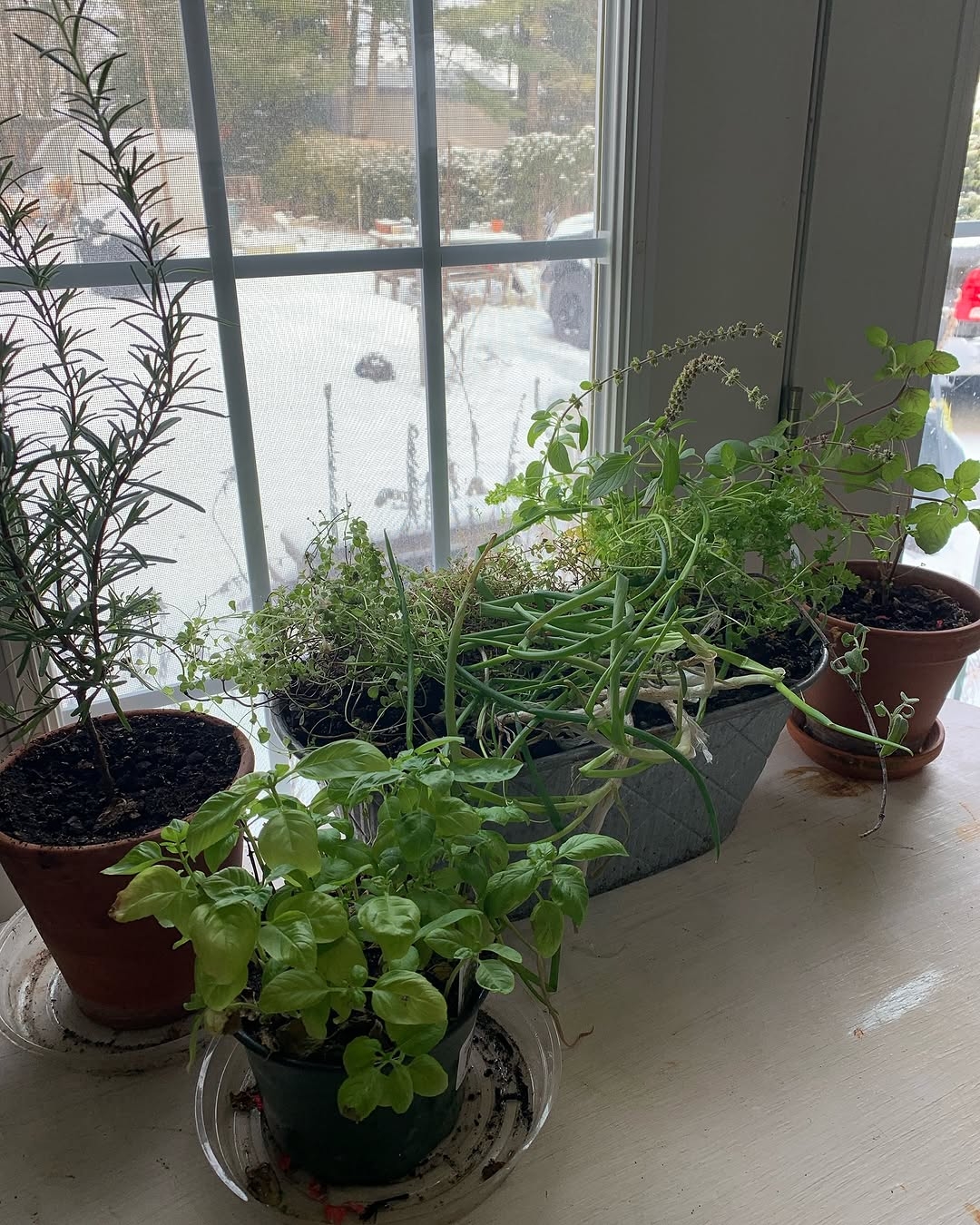
When it’s not possible to put your herbs outside, windowsill gardens can be a great alternative for growing fresh herbs indoors. Make sure to place your windowsill garden in a spot that receives plenty of sunlight to ensure your herbs thrive. Windowsill herb garden from @oldinganddavies
- Vertical Herb Gardens: Space-saving and visually appealing, vertical gardens can be created using wall-mounted planters, tiered shelves, or repurposed wooden pallets. This design not only conserves space but also adds a decorative element to your home.
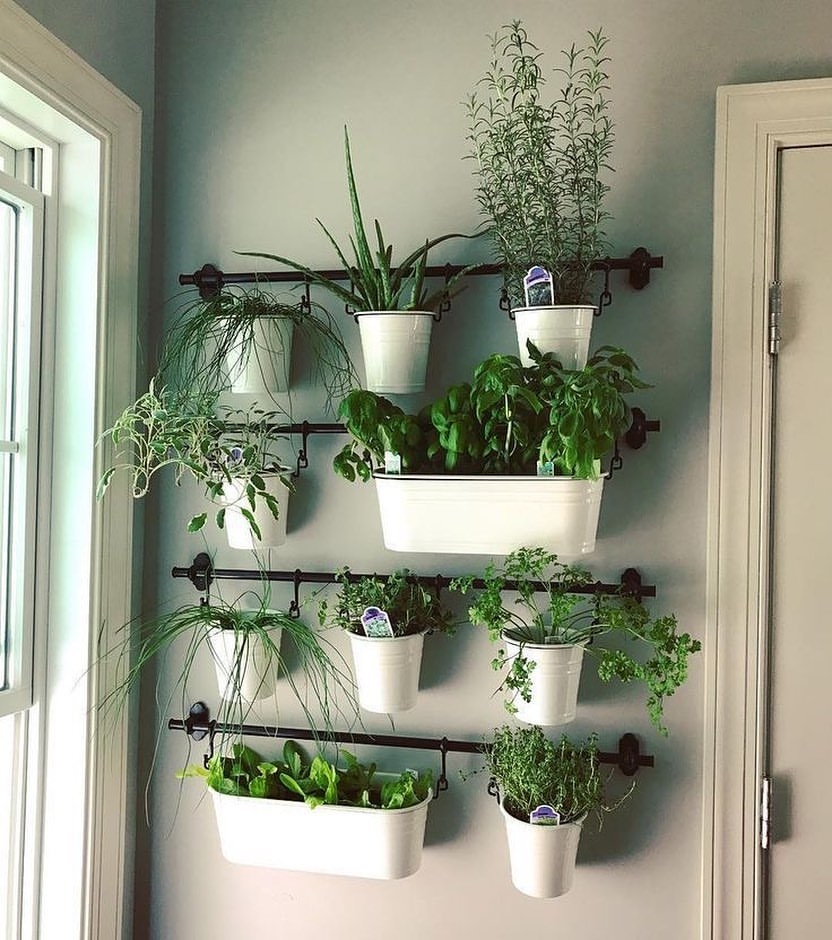
Wall-mounted racks offer a convenient and space-saving solution for hanging potted herbs, making them ideal for indoor herb gardens during winter. Vertical herb garden from @goodhealthgroupclinic
- Hydroponic Systems: For those who prefer a high-tech solution, hydroponic systems are an excellent option. These setups use water and nutrient solutions to grow herbs, eliminating the need for soil. They’re perfect for urban gardeners or those with limited space.
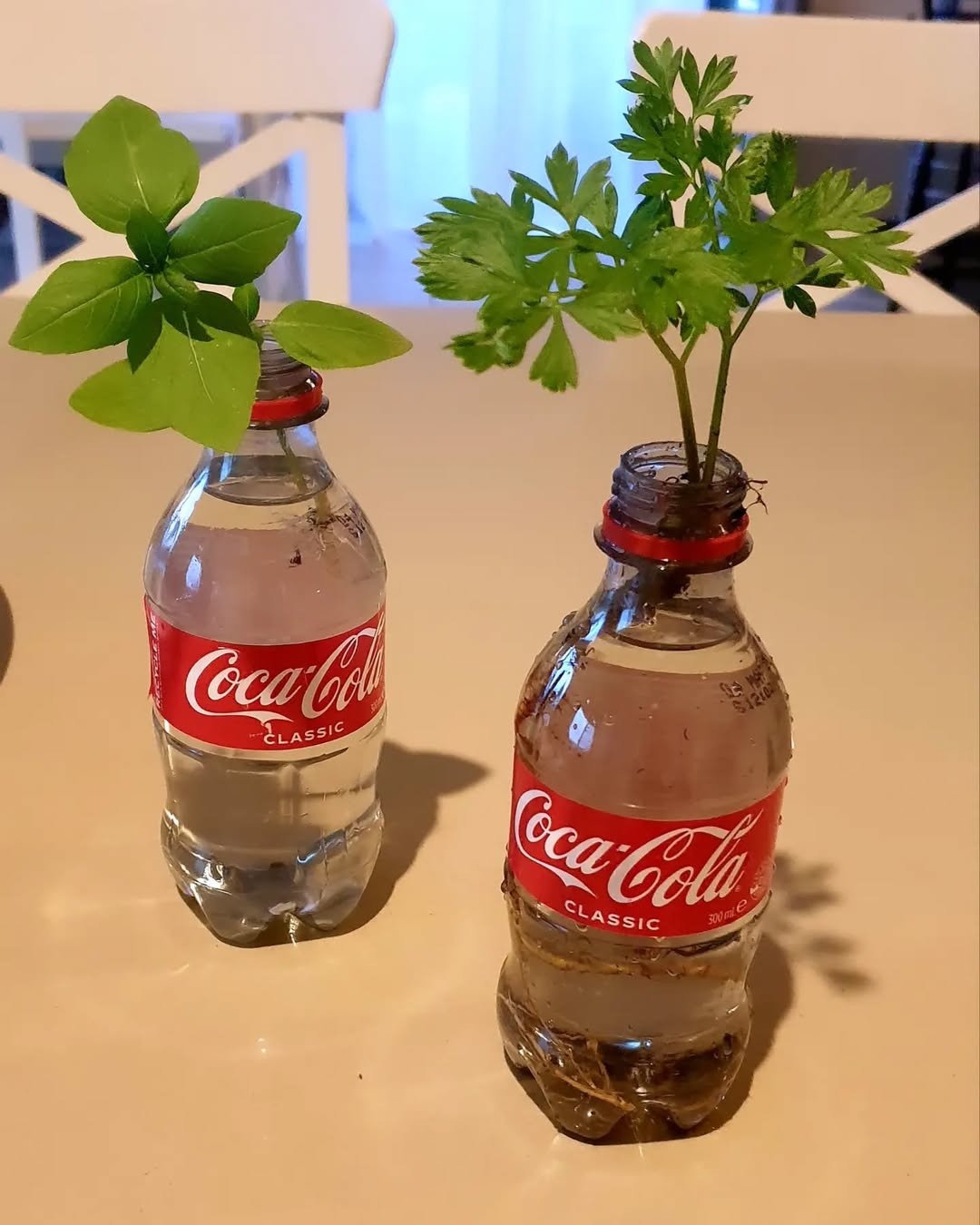
Old bottles can be used as an eco-friendly and fun DIY project for growing herbs without soil, making it an eco-friendly and enjoyable DIY project to try during winter. Hydroponic herb garden from @the_ruby_rabbit
- Terrariums and Miniature Greenhouses: A glass terrarium or small indoor greenhouse can create a microclimate ideal for herbs like basil and parsley. These setups are not only functional but also serve as beautiful home decor pieces.
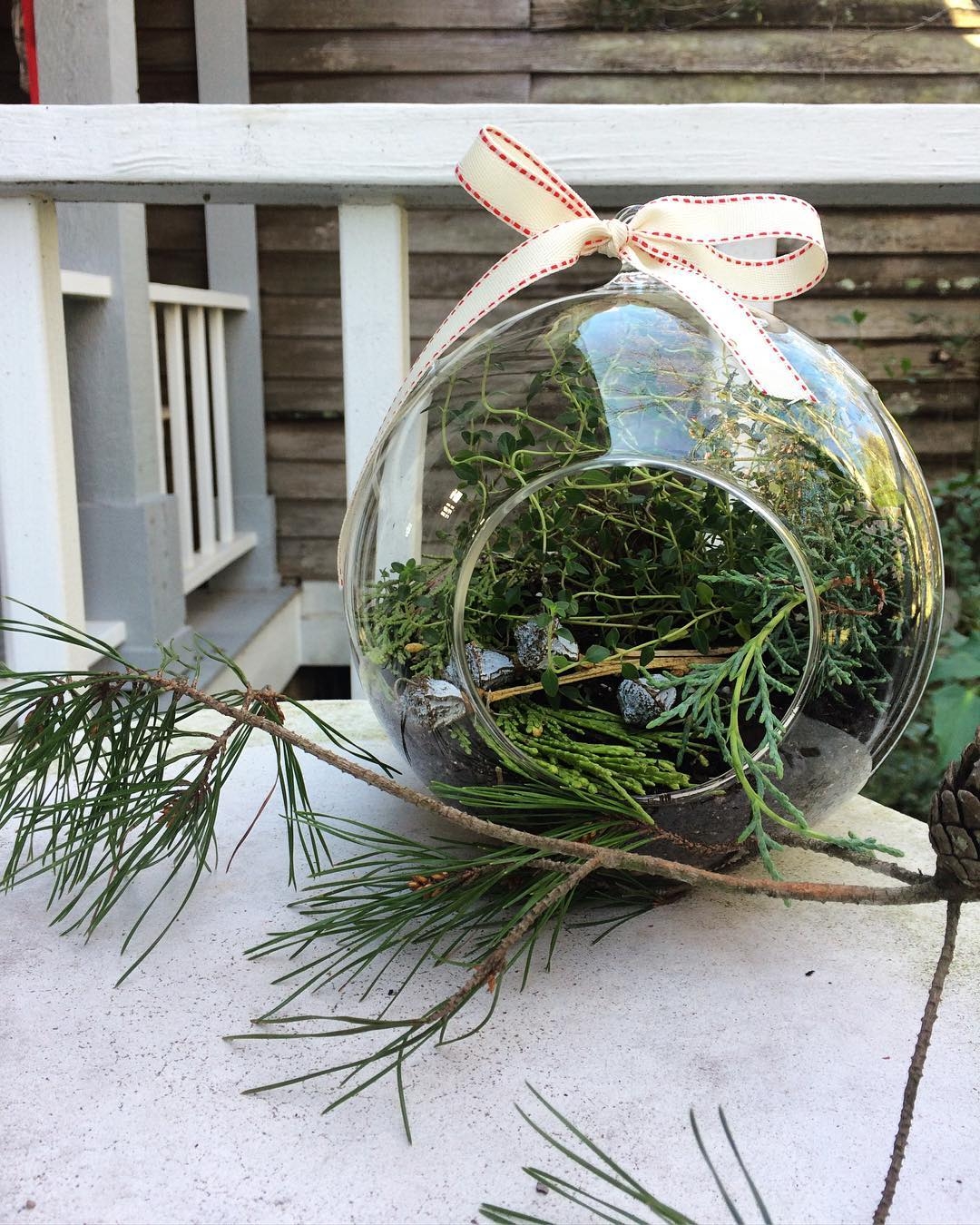
Not only does it give benefits, but a herb terrarium can also serve as a beautiful and natural touch for your winter decor. Additionally, they require minimal maintenance, making them a perfect option for those with busy schedules. Herb terrarium from @redonionbr
- Mason Jar Herb Gardens: Furthermore, the mason jar herb garden is another indoor herb garden for winter. This DIY project involves planting various herbs in mason jars, which can be placed on a windowsill or countertop to receive adequate sunlight. It’s a creative and space-saving way to grow fresh herbs during the colder months.
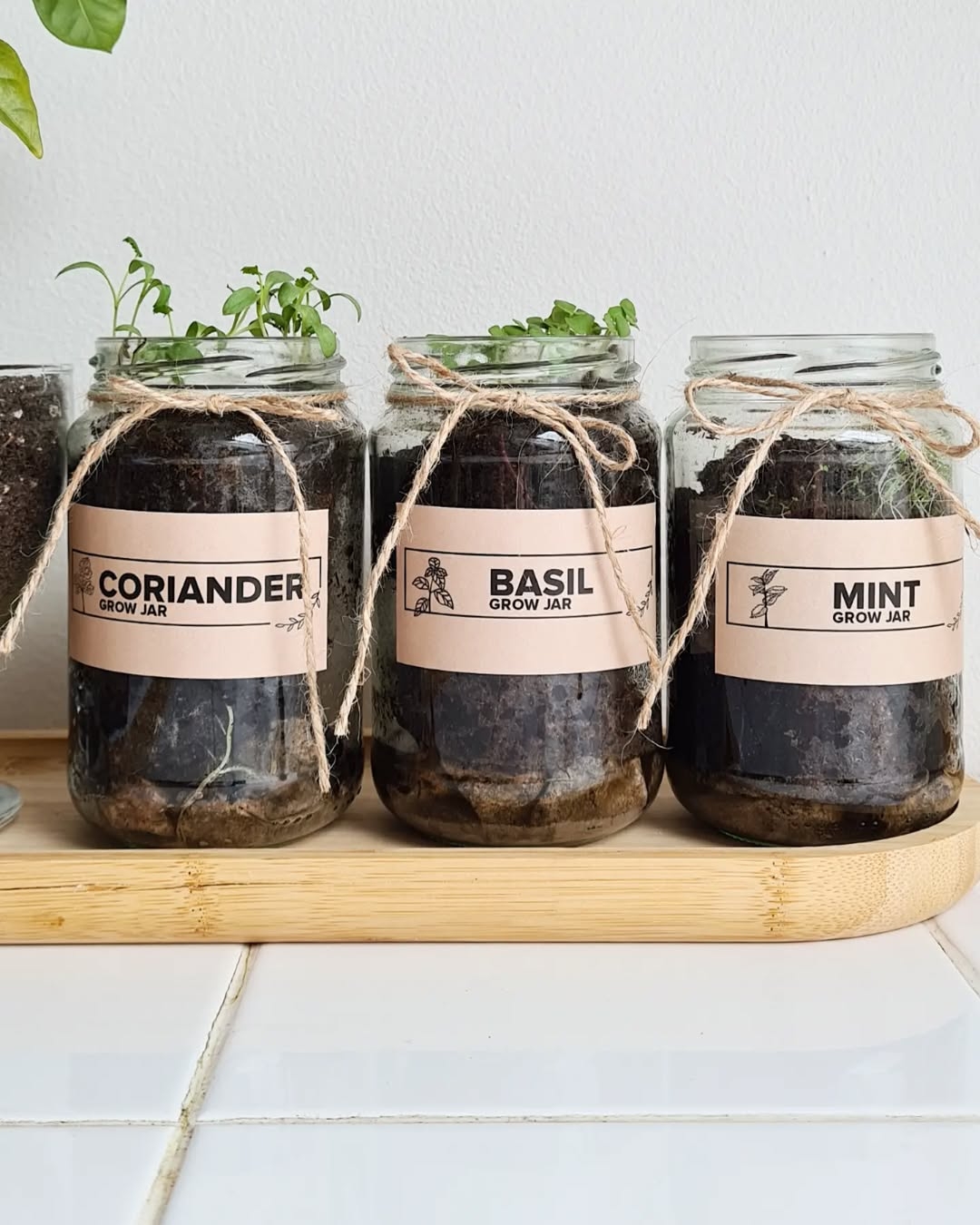
Mason jar herb gardens are easy to set up, indoors-thriving, and provide fresh greenery for kitchens or living spaces during winter. Mason jar herb garden from @themorgansabode
Outdoor Herb Gardening in Winter
For gardeners who prefer to keep their herbs outdoors, it’s essential to choose the right techniques and hardy plants. Here are some tips for winterizing your outdoor herb garden:
- Raised Beds: Raised beds with good drainage and insulation can protect herbs from frost. If possible, you can add a cold frame or cloche over your plants. It can provide additional warmth and shield them from harsh weather.
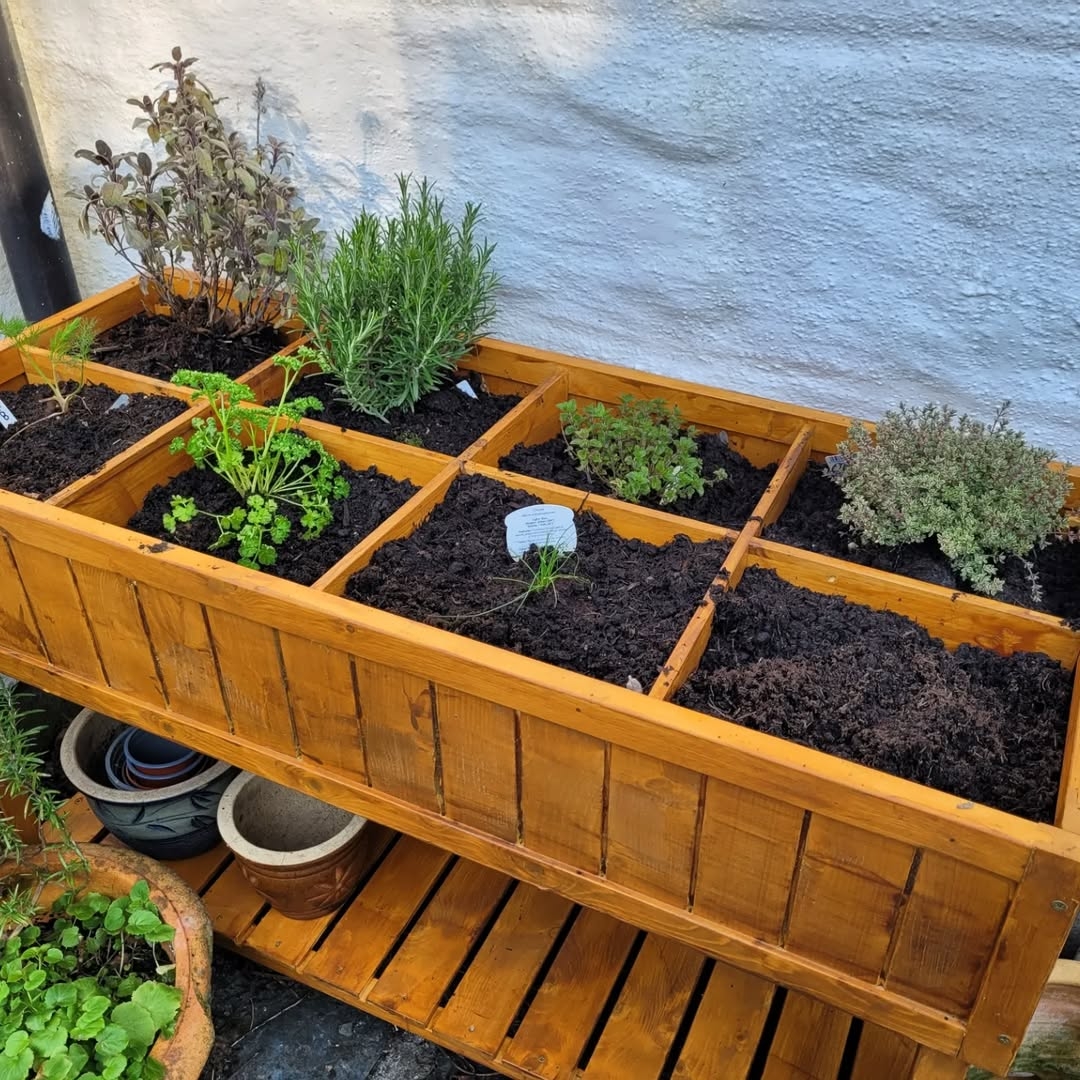
During winter, a raised herb planter can help protect delicate herbs from frost and freezing temperatures. Additionally, it allows for easier access to the herbs when cooking in colder weather. Raised herb planter from @msracheyb
- Potted Herb Gardens: If you’re concerned about frost damage, consider planting herbs in pots that can be moved indoors during extreme cold spells. Portable herb gardens offer flexibility and protection during winter.
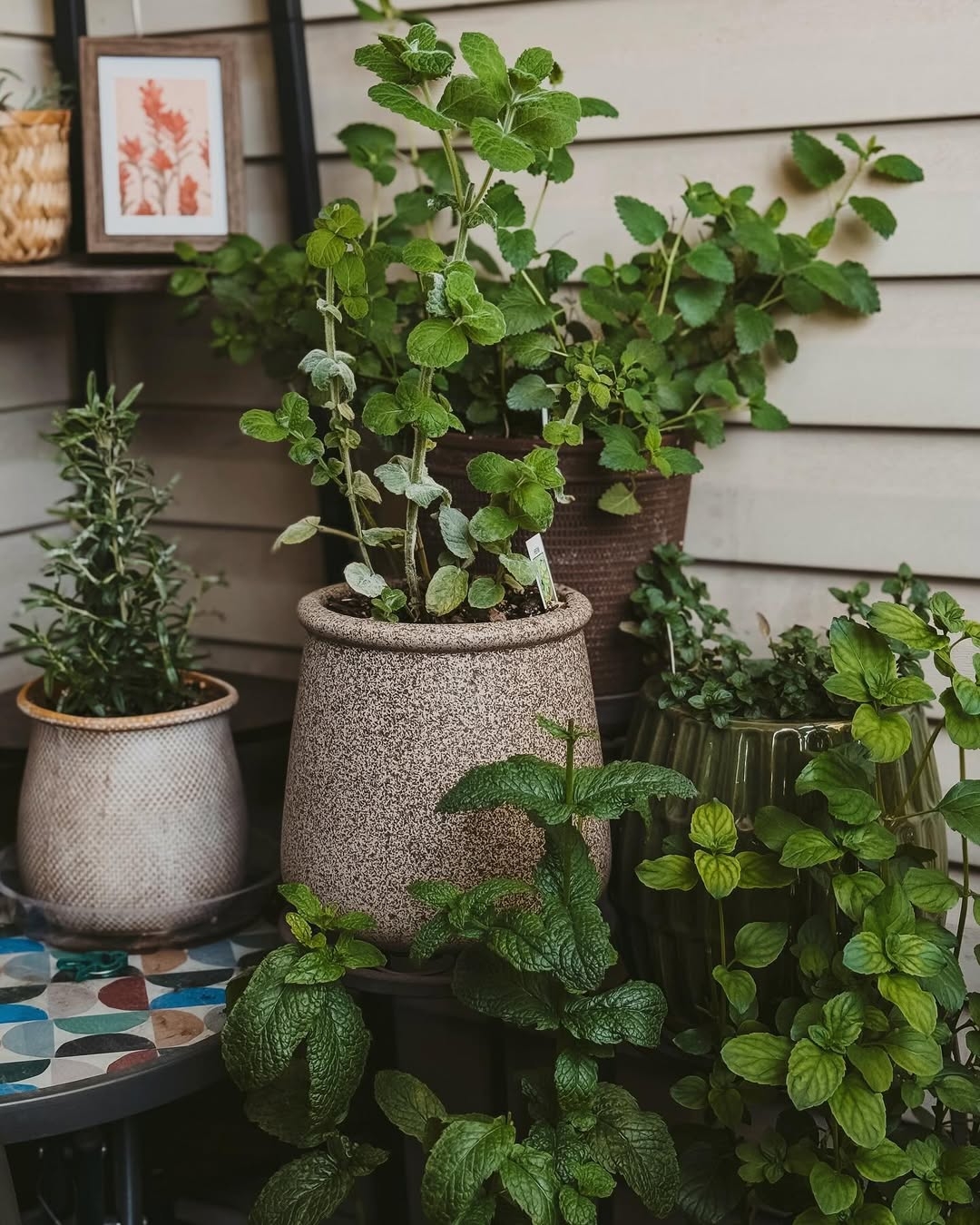
Potted herb gardens allow you to plant and grow your favorite herbs in a small space, such as a balcony or kitchen counter. This convenient setup provides easy access to fresh herbs for cooking and adds a touch of greenery to your living space this winter. Potted herb garden from @our.little.bloom
- Herb Garden Containers: A herb garden container is another outdoor herb gardening project that you can do during the winter season. This type of gardening allows you to have fresh herbs easily accessible for cooking, even when the weather is cold. You can plant them in wood containers and place them near a sunny window or under a grow light to ensure they receive enough sunlight to thrive during the winter months.
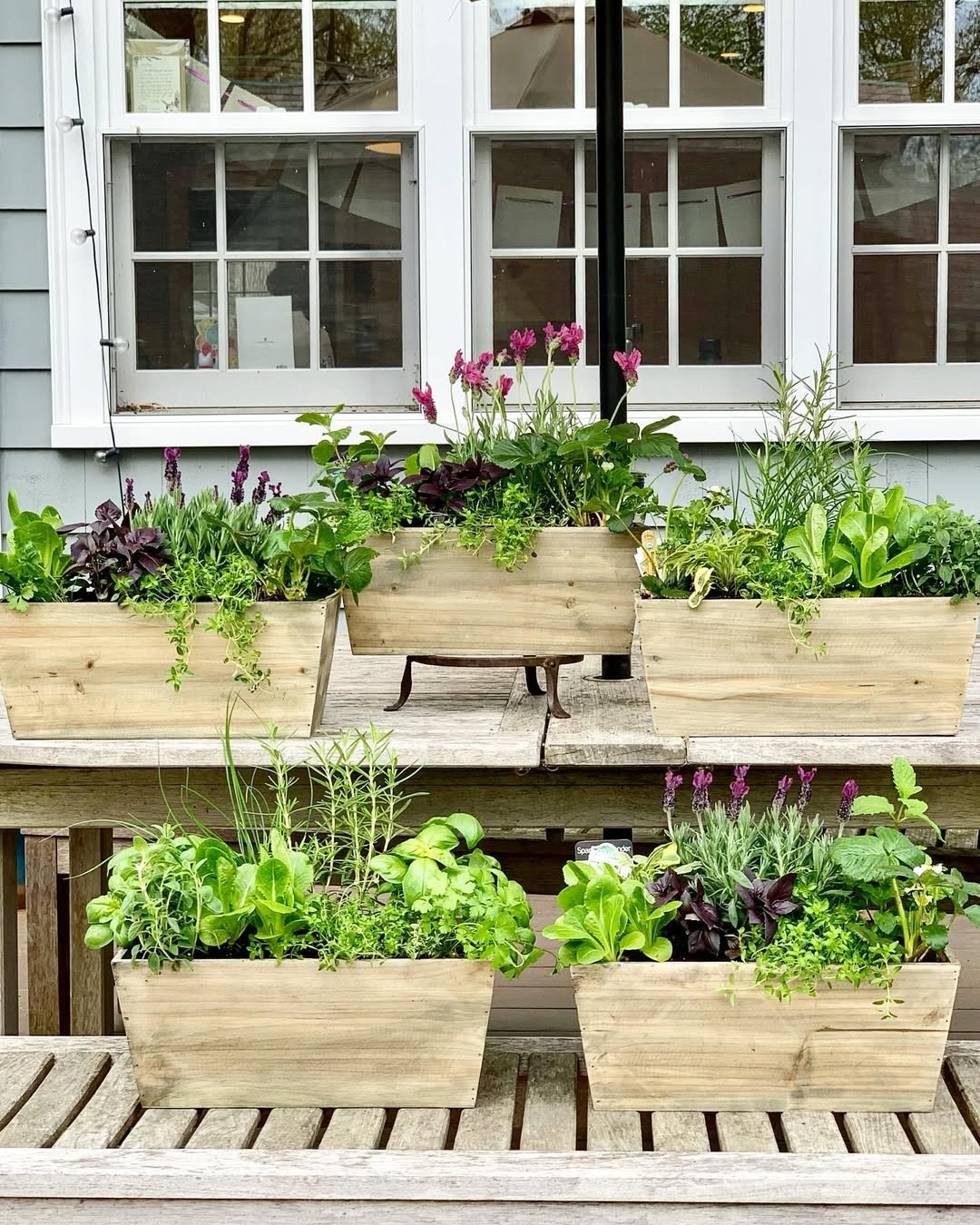
Wooden containers are ideal for winter herb gardens, providing a rustic, natural look and good drainage, preventing root rot and enhancing the overall aesthetic appeal. Herb container garden from @thistlecontainers
Caring for Your Winter Herb Garden
Regardless of whether your herb garden is indoors or outdoors, proper care is crucial to ensure healthy plants during winter. Follow these essential tips:
- Light: Herbs need adequate light to thrive. Supplement natural sunlight with grow lights if necessary, especially in regions with short daylight hours.
- Watering: Overwatering is a common issue during winter. Allow the soil to dry out slightly between waterings to prevent root rot.
- Humidity: Indoor heating can create dry air that stresses plants. Use a humidifier or place a tray of water near your herbs to maintain humidity levels.
- Pruning: Regularly prune your herbs to encourage new growth and prevent legginess. Harvest leaves as needed for cooking or drying.
Winter doesn’t have to mean the end of your herb gardening journey. With a bit of creativity and the right techniques, you can enjoy the beauty, flavor, and therapeutic benefits of fresh herbs all season long. Whether you opt for a cozy indoor setup or a hardy outdoor garden, winter herb gardening can bring life and inspiration to the colder months, ensuring that your green thumb stays active year-round.


